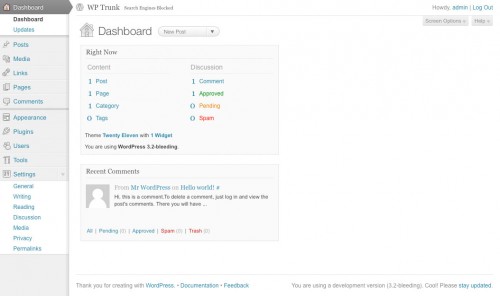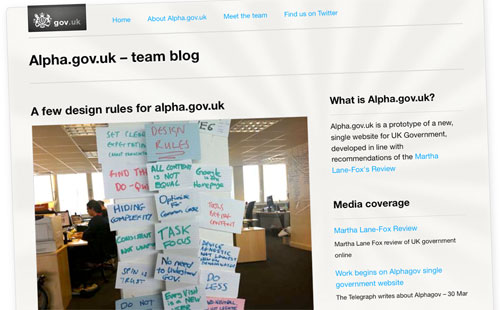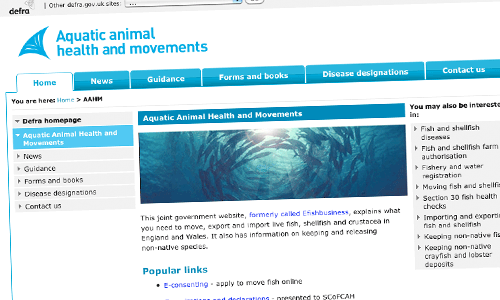I think we’re all agreed that government departments outsourcing everything computer-related in one single contract was a mistake. A bit like, say, outsourcing your press office to BT because they spend most of their time working with phones.
Where it might well have made sense to contract out your IT infrastructure – you know, putting PCs on desks, servers in data centres, wiring them all up, that sort of thing – it certainly didn’t help either side, frankly, to lump web development in there too. Tensions inevitably arise; and in my line of work, I tend to see and experience it more than most.
Which is why I read Dan Harrison’s latest blog post with a certain air of resignation.
A single-source model sounds wonderful. There’s never any doubt as to who to go to when you have a problem or indeed a requirement. But the problem is that this comes at a price. … And for this reason, prices go up. I heard only the other day of a large IT provider charging £28,000 (twenty-eight thousand pounds) to make two DNS changes on behalf of a Department. No matter how you do the maths, it’s incomprehensible to get anywhere close to this number in a rational world.
Sadly, it comes as no surprise. DNS is where the infrastructure Goliath finally comes face to face with David (or more likely, Dave), the agile web developer. Dave has just built a microsite, or rebuilt the corporate website, and wants to point a department.gov.uk address at it. That means he has to deal with Goliath, the uber-sysadmin who owns the DNS table.
DNS retains an unjustifiable air of mystery. It’s ultimately just a text file, which you edit like any other. You add a new line, containing the name of the new server, whether real or virtual, and the IP address to which traffic should be directed. And that’s pretty much it. The information gets cached around the internet, for a time period which you can specify (‘ttl’ – time to live) – whence arises the mythology about DNS changes taking up to 48 hours to replicate. You do need to be careful; it’s entirely possible that a single character out of place could bork your organisation’s websites, email, everything for a day or two. But it isn’t rocket science.
By definition, it’s the last job on any given project. You start by locating the right person to speak to – usually quite tricky, as DNS edits don’t need to happen very often. That person needs to be bothered to listen to you: not always a given. There’s almost certainly a procedure for making the request. There’s then almost certainly a procedure for considering the request. The job then has to be ‘booked in’ – yes, the job of editing a single line of text. And then, some time later, comes the bill – including the salaries of all those people whose job wasn’t the actual editing of the actual text file, plus the outsourced provider’s markup, of course.
And yes, if you were the single-source IT provider, and you wanted to make it difficult – and ultimately more expensive – to bring in cheaper SME suppliers to do web development work, this would be one way you might do so. Not that I’m suggesting that’s why it happens.
But it’s hard to blame the many organisations who sneak off to register sneaky little .co.uk domains in the commercial marketplace. They can pay someone like 123-reg just £2.99 per year (ex VAT)… and not only does this give them their new domain within a matter of minutes, it’s a domain they have hands-on control of, through 123-reg’s (very straightforward) online interface. It’s the wrong thing to do, for numerous reasons – except that (a) it gets the job done, and (b) the taxpayer saves, looking at Dan’s specific case, something in the region of £13,996.
So… a Single Domain for government, anyone?






